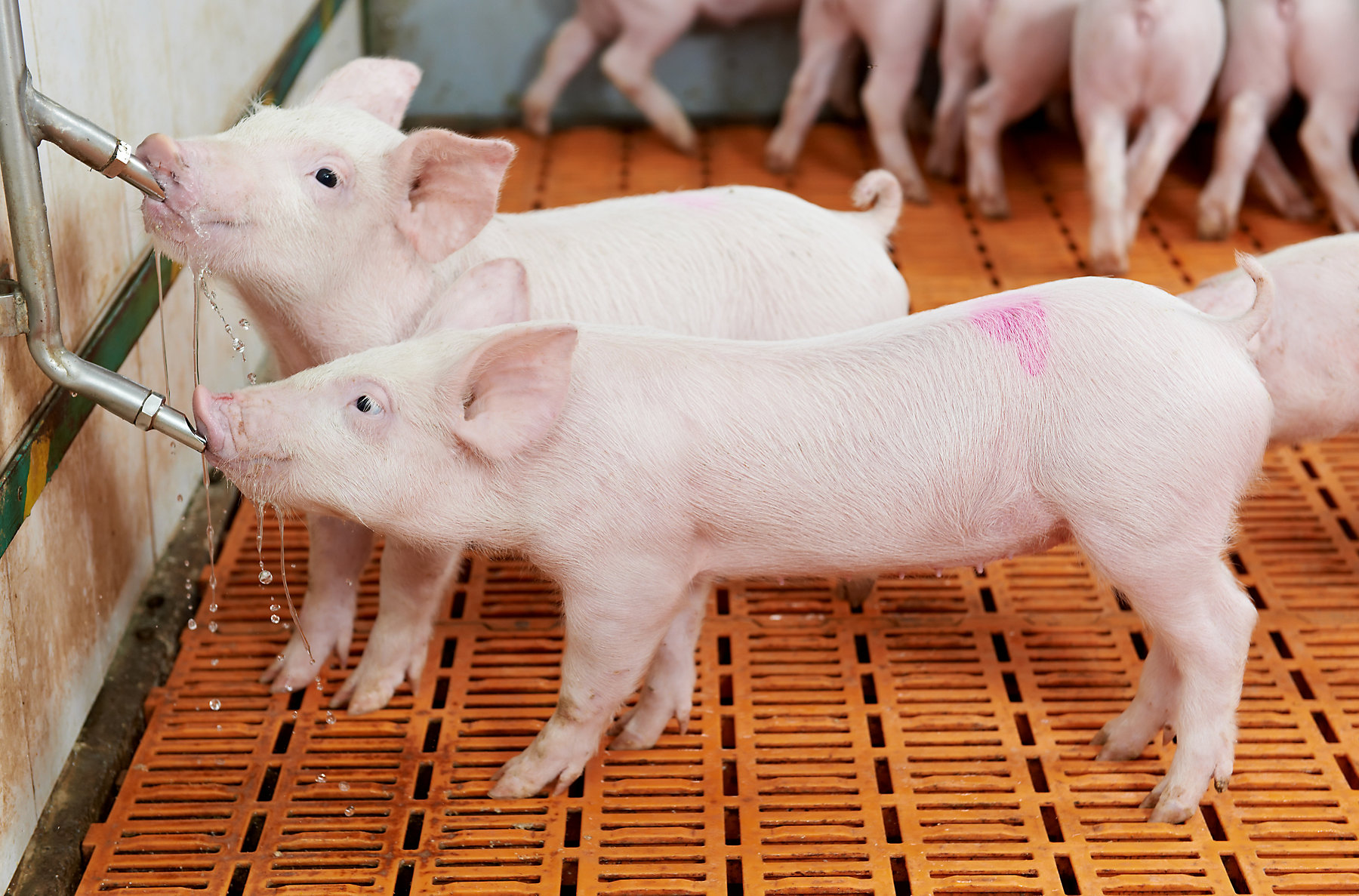Water is integral to almost every aspect of animal metabolism, serving as the vehicle for many chemical and enzymatic reactions within the animal. In this way, good water quality is essential to animal health and production performance. With the reduction and/or removal of antibiotic usage in livestock and poultry production, water quality is now taking on an increasingly valuable role. Providing clean drinking water, through the elimination of bacteria and other pathogens, should be a priority for today’s livestock and poultry producers.
Water can easily be contaminated by pathogens that are invisible to the naked eye, including Salmonella, Escherichia coli, Pasteurella, Streptococcus and Clostridium – all of which can compromise animal health and performance. Eliminating these contaminants before they get into the animal is key to preventing gut health issues, which can lead to immunity concerns.
Acids and Clean Water
An acid is a chemical species which causes the pH of a solution to drop due to the acid donating its H+ ions to the solution. The faster and more H+ ions donated, the quicker and lower the pH will drop. Because of this, acids have historically been used to lower the pH in the water, making a more unsuitable environment for pathogens to grow and survive.
Acids can be categorized as either bacteriostatic – which means they inhibit bacterial growth – or bactericidal – which means they kill bacteria and can inhibit new bacterial growth. Mineral acids, like sulfuric acids, are often considered very strong and aggressive acids because they drop the pH of the solution immediately. This rapid drop in pH makes for an environment unsuitable for bacterial growth. However, the quick drop in pH does not allow the acids to have any killing power.
Organic acids, like propionic acid, are often referred to as “weak” acids. These weaker acids do not release all of their H+ ions, but instead keep some intact. These intact H+ ions are what allow the acid to permeate the bacterial cell wall, leading to an eventual death of the bacteria. When selecting the right acids for your water quality management program, it is critical to ensure the acids can permeate the bacterial cell wall to kill the bacteria.
“The one-two punch of killing and inhibiting gives you a broader spectrum of protection and a more effective antimicrobial solution for your animals’ health and performance,” says Marsteller.
A Full Hand for Clean Water
When playing cards, four-of-a-kind will beat a single high card any day. The same goes for your water management program. Utilizing a blend of organic acids over a single acid is key for a comprehensive water antimicrobial program. KEM SAN®, by Kemin Animal Nutrition and Health, is a unique combination of four of the most effective organic acids. KEM SAN is an Environmental Protection Agency (EPA)-registered product and is buffered to a pH of 4.7-5.7, which optimizes the effectiveness of chlorine, bacterial control and overall handling by employees.
References
http://www.purewatergazette.net/waterandmetabolism.htm. Accessed on December 29, 2017.
https://ehs.colorado.edu/resources/disinfectants-and-sterilization-methods/. Accessed on December 29, 2017.


